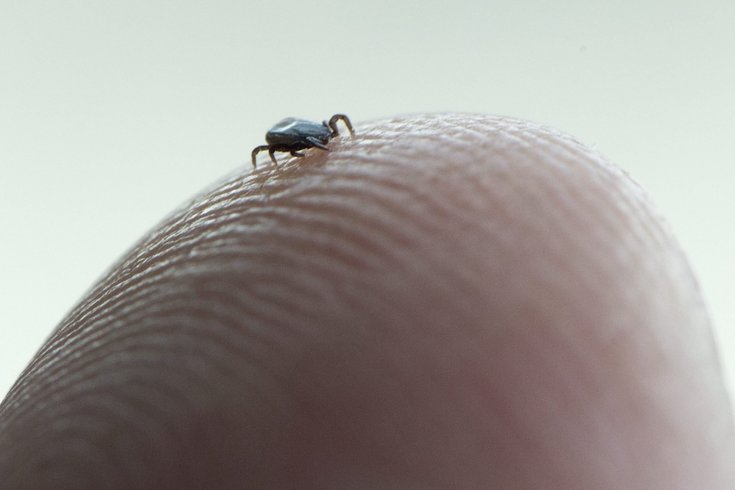
May 15, 2024
 Fredrik Sandberg/Sipa USA
Fredrik Sandberg/Sipa USA
The Pennsylvania Department of Health has launched a new online dashboard that show where ticks are prevalent so that people can take precautions to protect themselves against Lyme disease.
With Pennsylvania consistently ranking among the states with the most Lyme disease cases, state health officials have rolled out an online tool that shows where the tick-borne illness is most prevalent.
A new "dashboard" created by the Department of Health lets people check areas for the latest data on tick prevalence and tick-borne diseases, such as Lyme disease, when planning outdoor activities. Deer ticks, also known as blacklegged ticks, transmit Lyme and are the most common form of tick in Pennsylvania and the Eastern United States.
"Pennsylvania has incredible outdoor recreational opportunities, and we want to provide as much information as possible for residents to enjoy them safely," Dr. Debra Bogen, the state's acting health secretary said in a press release. "Taking appropriate precautions can help avoid Lyme and other tick-borne diseases that can lead to serious illness. As a pediatrician, I always recommend doing a tick check after playing outside, especially for children and pets."
Lyme is one of the most commonly reported diseases in Pennsylvania, with about 100,000 cases a year – although the actual number may be higher. Lyme is also the most common "vector-borne" – meaning caused by parasites, bacteria or viruses transmitted by a living agent, such as a mosquito or a tick – in the United States, according to the Centers for Disease Control and Prevention.
Symptoms of Lyme may include a skin rash that sometimes appears as a bull's eye, headaches, muscle pain, fever, chills and swollen lymph nodes. Lyme can be treated with antibiotics, but there is no vaccine for the disease.
Approximately 5-10% of people who contract Lyme develop prolonged symptoms, which may include fatigue, body aches and difficulty thinking, according to the CDC.
To protect yourself against Lyme and other tick-borne diseases, the Pennsylvania Department of Health recommends that after you come indoors you:
• Examine gear and pets for ticks
• Check your clothing for ticks
• Conduct a full body check after returning from potentially tick-infested areas, including your own backyard
• Remove any ticks you find
• Shower soon after being outdoors
• Tumble dry clothes in a dryer on high heat for 10 minutes to kill ticks